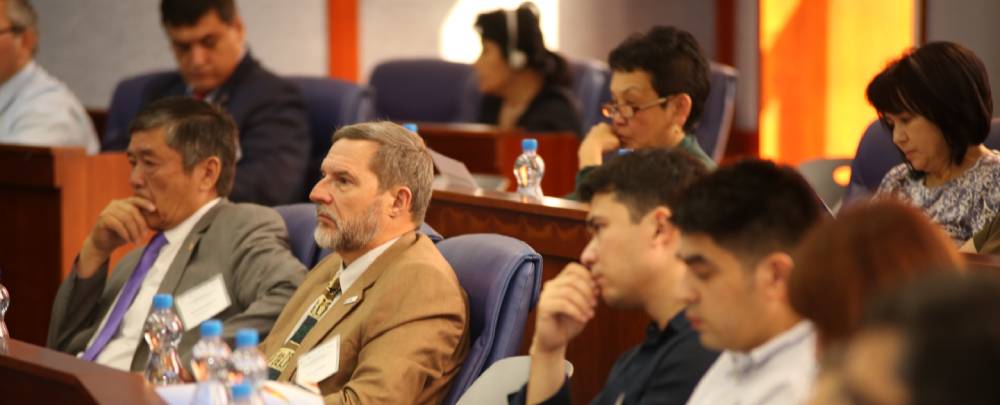- (123) - 456 - 78910
- info@wiut.uz
- Mon-Fr 9:00-18:00

Assessment Matters
- 6:00 pm - 8:00 pm
- Speaker: Elena Volkova
This course examines the role that assessment plays within the overall learning process. You will learn about assessment and quality assurance, the role of assessment and feedback in the learning process, assessment development, and design. You will be supported and guided to self-evaluate the current level of your knowledge and skills in the area. On course completion, you will be in a position to initiate and facilitate new approaches to assessment in your discipline.
-
Facilitators
Elena Volkova, MEd, Trainer Development in ELT, University of Exeter, College of St Mark and St John, Plymouth, UK; Certificate in Effective Feedback practices, Trinity College, Brighton, UK; Certificate in Assessment and Curriculum development, Indiana University, USA
Alexey Semyonov, MA in Education Psychology, Cambridge University, UK
Anastasiya Bezborodova, Postgraduate Certificate of Special Study in Teaching and Learning WIUT, MA in English Linguistics, MA in TESOL, Certificate in Testing, Evaluation and Assessment, NILE, Norwich, UK; Certificate in Assessment for Second Language Skills, Northern Arizona University, Flagstaff, AZ, USA
Nora Gavalyan, tutor UC SSTL, Master of Arts in English; PGC WIUT;
Erkin Mukhamedov, MA in English Language Teaching with Specialism in Testing and Assessment from Warwick University
Course overview
This course aims to help its students to discuss the role of assessment in the learning process. It focuses on the different purposes of assessment highlighting assessment as learning as a key element in the process of supporting learning. The course concentrates at marking, moderation and other quality assurance mechanisms that help ensure the assessment reliability. Discussions about principles of good assessment practices, approaches to feedback giving, assessment design will be helpful to any teacher to shake the traditional view on assessment.
Learning outcomes
On completion of the course students will be able to:
1. Identify the purposes and principles of assessment and justify them in personal assessment practices.
2. Critically evaluate the assessment approaches, techniques, and types.
3. Identify the steps and strategies for effective marking
4. Design assessment criteria
5. Provide effective feedback to learners.
6. Demonstrate basic knowledge and skills in test development
Indicative syllabus content
1. Purposes of assessment - for, as and of learning.
2. Learning Outcomes as a starting point for assessment development.
3. Examining assessment principles and practices.
4. Designing assessment.
5. Issues in assessing and moderating students’ work.
6. Providing effective feedback
7. Using technology to support effective assessment and feedback practice.
8. Equality and inclusivity in assessment.
9. Avoiding plagiarism and misconduct.
10. Assessing groups.
11. Teaching and learning methods
The course is taught through face-to-face workshops of a participatory nature, online tasks, and project-based assessment. Students will have an opportunity to work collaboratively with other colleagues to share assessment practices and develop opinions, ideas and common understandings.
Who is the course for?
The course is for practicing teachers and specialists who support learning from any level and any sector of education. Business trainers, coaches, private tutors, library specialists are eligible to apply. Novice teachers, graduating from the pedagogical institution may find this course a good extension to their knowledge.
Application and selection process
To be admitted to the course candidates have to be able to satisfy the following conditions:
1. Have a higher education or professional qualification
2. Have an appropriate English language proficiency, equivalent to an overall score of 6.5 in IELTS. Prior study in English can also be considered, subject to the evidence provided.
3. Be in full- or part-time employment as a practicing teacher, a teaching assistant or a specialist supporting learning.
Evidence of the above should be submitted during the admission process.
All applicants will be formally interviewed to review the evidence that they meet the criteria above and to determine their professional capability and the extent to which they could benefit from the course.
Application deadline: 1st of April 2019.
The number of places in one group is limited to 20.
Course structure
The course is taught through face-to-face workshops of a participatory nature, online tasks, and project-based assessment. Students will have an opportunity to work collaboratively with other colleagues to share assessment practices and develop opinions, ideas and common understandings.
Benefits
You will:
Be given opportunities and professional support to achieve the course learning outcomes.
Benefit from using the WIUT LRC resources and other facilities
Enhance your career opportunities
Build your professional network
Receive a WIUT validated the certificate of course completion
Become a WIUT alumnus and obtain a 15% discount for upcoming professional development courses and Master’s programmes.
Phone: +99871 2387443




